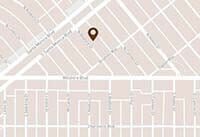
Did you know that dehydration after bariatric surgery is one of the most common pressing problems you can experience after the surgery?
According to
mccartyweightloss.com, a staggering 37% of bariatric surgery patients are being brought back to the hospital due to serious dehydration symptoms.
And while the solution to dehydration is easy to say (“drink more water!”), due to to the changes that have occurred in your body, staying hydrated after surgery can be harder than it normally is.
For example, with the new limitations in your stomach’s capacity, drinking too much quickly may lead to nausea and vomiting. You may find it hard to adjust to gradual and steady sips of water throughout the day, as opposed to gulping regular volumes of water at one go.
But going back, the first thing you need to do is to identify if you are indeed dehydrated at the earliest opportunity. That way, you can quickly replenish your lost fluids before it gets worse.
And that’s what we’ll discuss in this article.
Read on to find out more about the possibility of dehydration after bariatric surgery, how to spot its symptoms, and what you can do to avoid it.
What Causes Dehydration After Bariatric Surgery?
The first thing to note is that not all weight loss procedures affect your body’s dependence on fluids. Dehydration is more common for patients who have undergone gastric sleeve because it involves the removal of a portion of the stomach. So if that’s your particular procedure, be on guard.
However, take note that new restrictions to your diet as a result of bariatric surgery also mean a limit to your water intake.
To add to this, the possibility of experiencing nausea (a possible side effect after any procedure) every time you drink may make you stop consuming water altogether just to avoid the unpleasant sensation.
Another cause of dehydration that you have to watch out for after bariatric surgery is diarrhea, which is another possible side effect. Remember that after the procedure, your gastric organs will need time to adjust and recover. During this process, a lot of food and substances might not be digested properly, resulting in frequent excretion of watery stool.
What Are The Signs Of Dehydration After Bariatric Surgery?
If you’ve just undergone any bariatric procedure, these are some of the common signs to watch for as possible indicators of dehydration:
- Thirst
- A dry mouth
- Darker urine compared to your normal urine color
- Lower occurrences of urination
- Dry skin
- Lightheadedness
- Nausea or dizziness
- A rapid heart rate
- A feeling of tiredness or irritability
- Lethargy
- You can’t keep fluids down
- You are feeling disoriented
- You are much sleepier than usual, even when it’s not night
- You have bloody or dark stool
In case you’re experiencing at least one of these, it’s best to take a little bit of water at regular intervals. Lightheadedness, in particular, means that your blood pressure is plummeting. The usual first aid for this is the consumption of an electrolyte beverage.
If you feel like you are dehydrated, consult your doctor right away so they can prescribe a treatment.
What Can Happen If You Stay Dehydrated?
Remember, water is important in our bodily functions. For example, water is required to maintain a normal body temperature. It also helps in the removal of waste, and assists the heart in pumping blood.
So what happens if you end up not drinking the required amount of water for normal bodily functions? Well, dehydration can lead to serious complications such as:
- Low blood volume
- Kidney failure
- Seizures
- Urinary and kidney problems
That’s why it’s important to note the signs of dehydration so you can get proper medical attention before you run into serious health complications.
Take little sips to prevent dehydration after bariatric surgery

How Can You Prevent Dehydration After Bariatric Surgery?
Here are some tips to make sure you take your optimal fill of fluids despite changes in your body:
- Don’t drink and eat at the same time, especially after surgery. Eat first, then drink thirty minutes later. That way, you avoid the feeling of being full quickly, and you eat the proper amount of food for nutrients, as well as drink the correct amount of water for hydration purposes.
- Drink frequently. Start your day by drinking water, then take little sips every hour. Drink your fluids slowly to avoid vomiting.
- To make sure you don’t forget to drink, always carry a water-filled bottle wherever you go.
- Keep track of the amount of water you’re drinking every day by taking notes or putting indicators on your water bottle. Also, set a timer to ensure you’re reminded to take your fluids regularly.
Speaking of keeping track, technology is there to help you. There are tons of apps right now that can automatically remind you to drink. Aqualert, WaterMinder, iHydrate, Daily Water Tracker Reminder, Hydro Coach, and My Water & Drink Reminder are some of the apps you can download. - You don’t have to intake uniform ounces whenever you drink. Do not force yourself – otherwise, you will end up throwing up your water, which is counterproductive.
- Limit caffeine intake if you can’t avoid it. Caffeine is a diuretic substance—it helps in ridding your body of salt and water. Therefore, they do not count as hydrating fluids.
- Avoid carbonated drinks. They can stretch your stomach and cause bloating. Plus, most of them carry empty calories.
- You can try different combinations of drinks so you can actually feel like you are drinking to refresh your body, not just because you have to. You can mix different fruits and flavorings to your water and sneak in some decaffeinated and non-carbonated beverages in between.
To summarize, your primary go-to solution for dehydration is to rehydrate yourself by drinking more fluids. You can never go wrong with water, but you can also drink electrolyte drinks and fruit juice (just be mindful of the sugar content for fruit juices).
Learn More About Bariatric Surgery In California – Contact Dr. David Davtyan!
Dehydration is definitely one of the possible serious side effects of bariatric surgery. But as you have read, as long as symptoms are caught in time, there’s no need to be worried about getting any bariatric surgery procedure.
So if you are seriously considering having bariatric surgery or just want to know more and be prepared, don’t hesitate to reach out to Dr. David Davytan from Glendale, CA, arguably one of the best weight loss surgeons in Los Angeles.
Dr. Davytan has an extensive career and knowledge in surgery and bariatric medicine. He can also relate to his patients’ health struggles, having experienced the same things. Therefore, you will not only get an experienced professional’s opinion but also a compassionate one.
With Dr. Davytan and us, his staff, rest assured that you will be treated and cared for in the best way possible. From the complimentary consultation to the surgery, to your post-op and recovery phase, we will ensure that you will get the proper nutrition and an emotional support system as you achieve your weight and health goals.
Reach out to us today and learn more about how we can work together towards a better, healthier you.
We look forward to hearing from you soon!
Posted on behalf of Dr. David G. Davtyan MD, FACS, FICS





